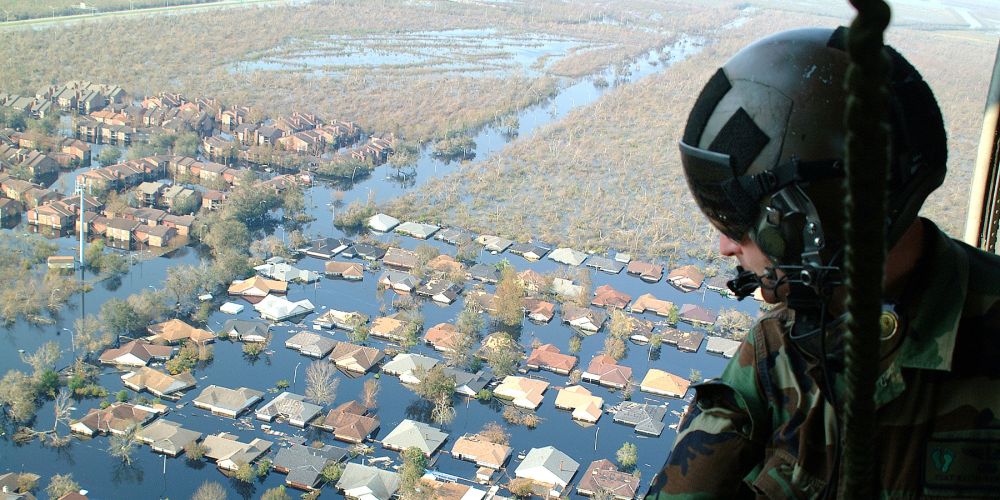Leeds awarded £435k for weather-related disaster communication research

water@leeds is delighted to announce that University of Leeds researchers have been awarded £435,115 from the Lloyd Register Foundation to research the best ways of communicating the threats of severe weather events across the globe.
The research collaboration combines expertise from the School of Earth and Environment (Dr Andrea Taylor, Dr Yim Ling Siu and Prof Suraje Dessai) and the Leeds University Business School (Dr Sarah Jenkins and Prof Barbara Summers) and was formed as part of water@leeds strategy for promoting philanthropic funding in partnership with the Advancement Team at University of Leeds. We believe this significant research will help advance community preparedness and resilience.
The need to communicate disaster preparedness is ever-increasing in the face of climate change. The World Meteorological Organisation claims that over the last five decades, extreme weather events are responsible for the deaths of two million people, and the loss of $3.64 trillion globally.
The ultimate aim of the research is to save lives and improve community preparedness for the growing number of extreme weather events caused by climate change.
Dr Sarah Jenkins, Lecturer in Applied Decision Making, said: “Extreme weather events are going to become more and more common. You only have to look at last summer in the UK and the 40ºC (104ºF) heat to realise that this is happening everywhere.
“How people perceive a risk largely influences their likelihood of taking mitigating action. We need to establish how these risks can best be communicated, so people can keep themselves safe and adapt.”
The research funds were awarded by Lloyds Register Foundation, and the world-leading researchers at the University of Leeds will use data from the Foundation’s World Risk Poll to help inform their research.
The latest World Risk Poll was conducted in 2021, and more than 125,000 people were interviewed across 121 countries. Its purpose is to explore how the relationship between perception and experience of risk may have shifted over time.
Dr Andrea Taylor, Associate Professor in Risk Communication, said: “Those who are most exposed to severe weather may not always be aware of what protective actions can be taken and when. By doing this research, the ultimate goal is that lives can be saved and losses avoided through better, more effective risk communications.”
By doing this research, the ultimate goal is that lives can be saved and losses avoided through better, more effective risk communications.”
The funds awarded by Lloyds Register Foundation are part of a £2m investment in seven new projects looking at the practical applications of the World Risk Poll globally.
Dr Sarah Cumbers, Director of Evidence and Insight at Lloyd’s Register Foundation, said: “The projects we have announced today showcase the potential of the World Risk Poll dataset to inform research and interventions that make a real difference to the safety of people and communities around the world, particularly in improving resilience to the threat of climate-related severe weather and disasters.
“We are delighted to be enabling these organisations to support and protect the lives of some of the world’s most vulnerable people.”
Main image: Extreme weather events have increased significantly as a result of climate change. Credit: Bill Huntington
